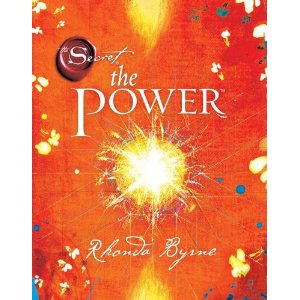Brene Brown: The power of vulnerability | Video on TED.com
Brene Brown: The power of vulnerability | Video on TED.com
TRACI L. SLATTON
Author Blog
Brene Brown: The power of vulnerability | Video on TED.com

The Power by Rhonda Byrne
Rhonda Byrne, author of The Secret and now The Power, is close to people who are close to my husband, so I had the good fortune to meet her. She was lovely, with the contained grace that I associate with people who live from a strong sense of purpose.
Earl: “Look! Shampoo that’s not tested on animals. I feel bad for those lab animals running around with dirty hair, but if it’s better for the environment, that’s the sacrifice they have to make.” Jason Lee as Earl Hickey, MY NAME IS EARL Karma is a funny thing
In one of the multitude of homes which my family inhabited as a peripatetic Navy family, we lived next door to a man who’d been in the army during WW2 and liberated one of the camps. I was 9 going on 10 and always sidling up to him to ask him what it was like. Sometimes he would talk. Mostly he would cry.
 We (parents) want them (kids who know everything about instant messaging and the latest celebrity rehab, but who run screaming from museums and art books) to grow up knowing about more than Wii and the Xbox. We aspire for them to become literate, cultured people who can say something meaningful about Michelangelo’s Pieta and Degas’ dancers.
We (parents) want them (kids who know everything about instant messaging and the latest celebrity rehab, but who run screaming from museums and art books) to grow up knowing about more than Wii and the Xbox. We aspire for them to become literate, cultured people who can say something meaningful about Michelangelo’s Pieta and Degas’ dancers.
My husband is a classical figurative sculptor, and I have a passion for Renaissance art that led me to write a historical novel set in Renaissance Florence. So we have been determined to instill some love of art in our four children, despite their resistance. Here are some of our strategies.
It’s not a perfect system, built as it is mostly on attention-based bribery and cajolery. And truly, the best way to teach kids to seek high culture, as with any other value, is for parents to embrace it themselves. That’s a tall order when we’re beset with carpooling to soccer games, overseeing homework, cooking, housecleaning, jobs, and the need to sleep a few hours each night. But with love, tolerance, and a sense of humor, we can encourage our kids to appreciate beautiful art.
FROM: new jersey family, february 2010.

Last night at a pre-Sundance party in NYC I had the great good fortune of meeting the talented and impressive Anthony Whyte, whose work is being made into a movie.
He was there with his business partner Jason Claiborne, who runs Augustus publishing, “Where Hip Hop literature begins,” and fellow author Erick S. Gray.
They were an intriguing trio. Whyte has a background in the armed forces, as did my dad, so we had that to discuss, as well as books and movies.
This morning I did some googling around and learned that Whyte had trouble getting his first novel published. He then self-published, and people were so hungry for his message and his platform that he sold several thousand books quickly. Of course then a publisher jumped on the bandwagon, bought the rights, and republished… to sell over a hundred thousand copies. Pretty good! Whyte mentioned none of this to me; he was classy and unassuming, and left it to me to discover his story.
We talked about Zora Neale Hurston, author of the classic THEIR EYES WERE WATCHING GOD. I remembered reading how Hurston had ended her life working in a library, and as a maid. It’s distressing that she died in obscurity, enduring financial struggles, when she’d written one of the masterworks of American literature. It left me thinking again about some questions that my oldest daughter had posed to me, over a year ago, when we discussed an African American Literature class she had taken: How did we in the U.S. create an underclass that left an entire group of people disenfranchised, struggling to find and authenticate their voice?
Is it enough that we have elected Obama as president? Is it enough that brilliant minds like Whyte, Claiborne and Gray are not accepting the status quo regarding their work, but are going out and creating new opportunities?
What does it take to create a truly equal society based on the hard work and merit of the individual, without regard to race, gender, sexual preference, and religion?
I hope none of these questions are offensive. I don’t know if they are politically correct or incorrect. They are the musings of a basically white woman of mixed genetic heritage who can not document her Native American ancestry because records were lost during the Trail of Tears. I’m just a mom with smart, irreverent kids, who ask good questions and expect me to engage them honestly.
And what else about the party? It was too much fun for the responsible parent I am, and included me introducing myself to a famous TV/movie actor who now believes I am sketchy. Because I did make a sketchy introduction, and he was far more gracious to me than I deserved. But I had to sally up to him with my big, tipsy grin–if only to be able to text my kids that I’d met him.